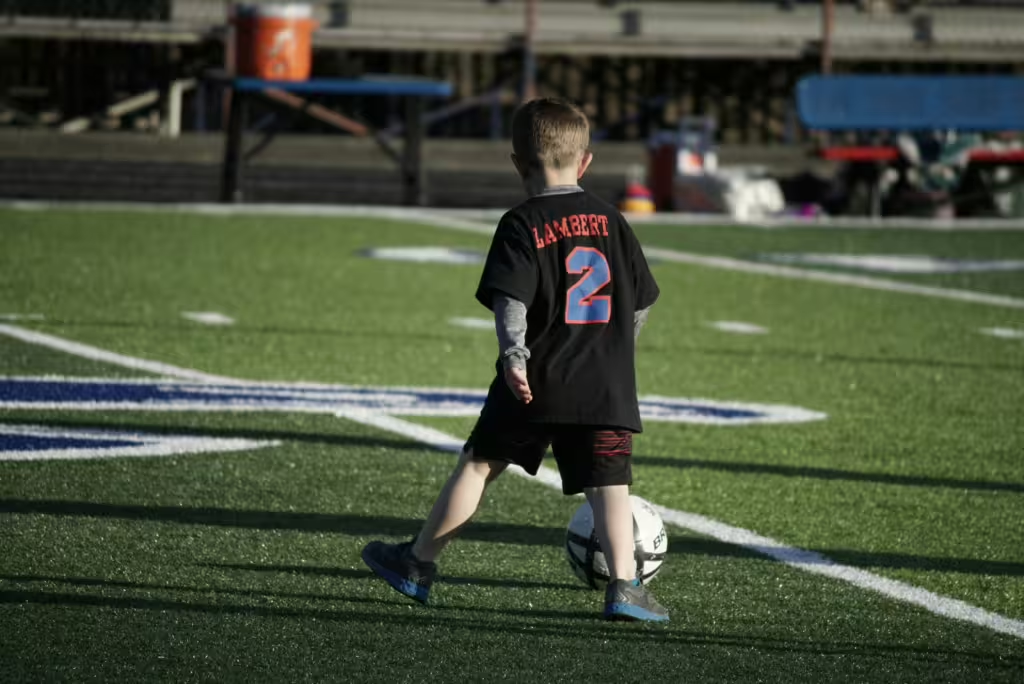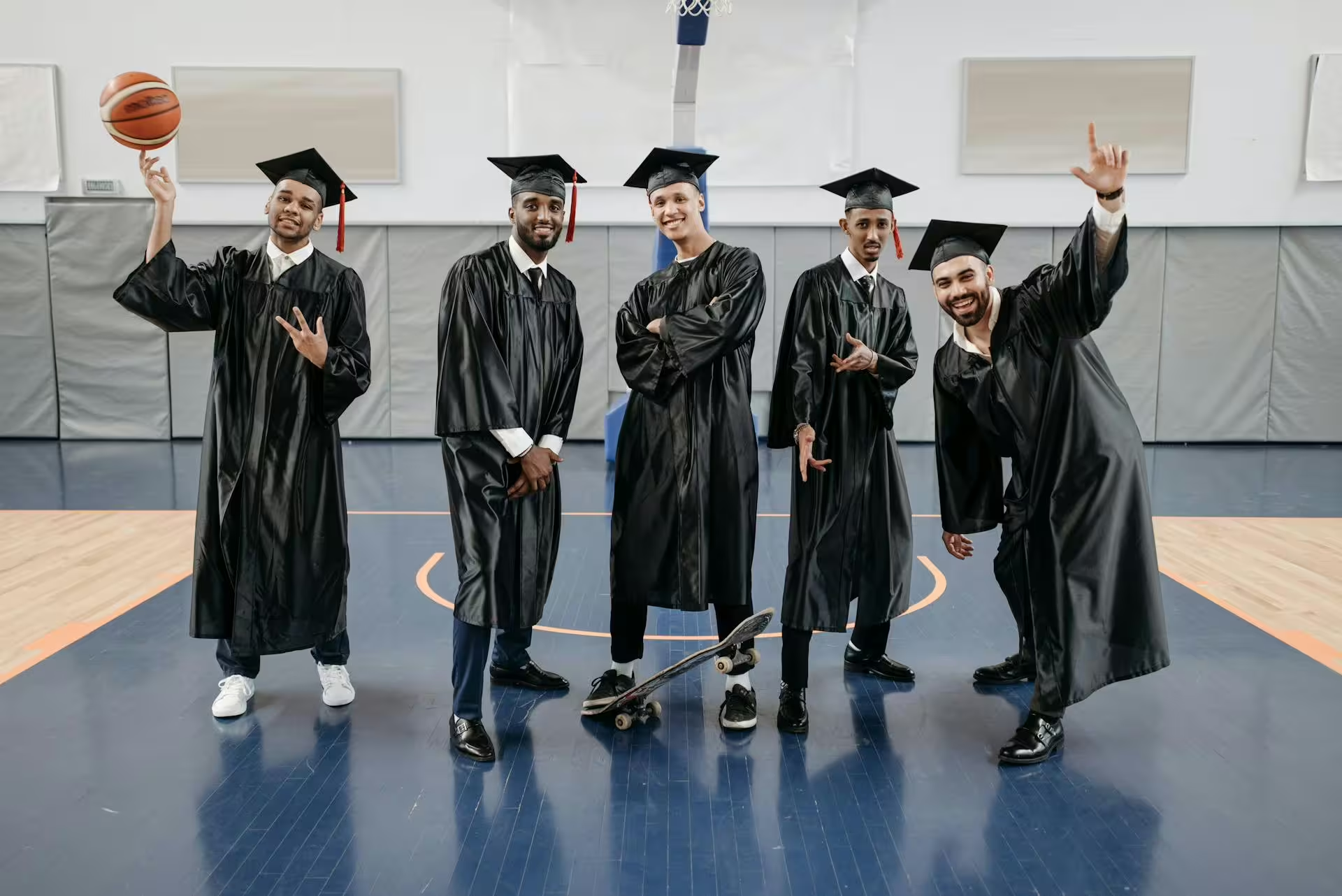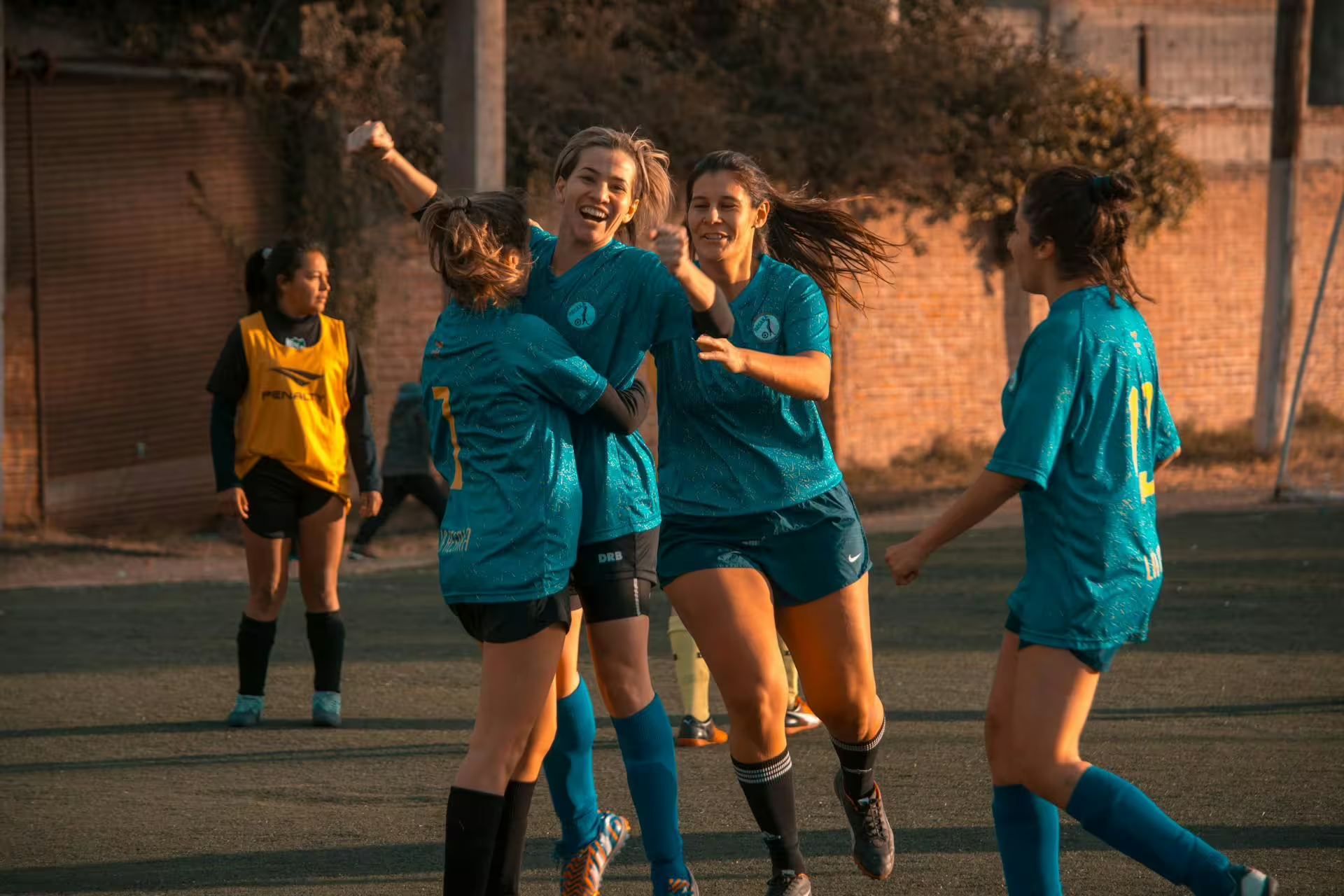They say that teamwork makes the dream work, or some such nonsense. But pallid colloquialisms aside, teamwork is perhaps one of the most essential skills a child can learn when engaging in sports at a young age. Still, teamwork isn’t just about performing well on the soccer field or the basketball court. Indeed, the significance extends far beyond such arenas of play. For young athletes, understanding the importance that teamwork can have in shaping their lives and sports careers, is essential. This article delves into the importance of teamwork in sports, but also discusses the skills that it eventually fosters throughout a child’s mental and emotional journey. It also delves into how parents can encourage a team-oriented mindset in their children.
What is Teamwork?
Teamwork is defined as the collaborative effort of a group of individuals working together toward a common goal. This is most evident in sports, where teams, that is, groups of people on either sides in a game, join together to oppose another team in the spirit of competition. Groups of athletes come together to achieve success as a team. This is different from solo athletes whose focus toward victory is based solely on individual performance. Teamwork in any arena, sports or otherwise, invariably involves communication, trust, accountability, and a shared commitment to excellence.
Key Components of Teamwork
- Communication: Effective communication is vital for any team’s success. Open communication ensures that players understand their roles, strategies, and are aware of each other’s strengths and weaknesses.
- Collaboration: Collaboration is when team members work together, combining their skills and talents to achieve their objectives.
- Trust: Trust is a cornerstone of most relationships and it’s equally important for teamwork to be effective. Players must learn to trust each other, knowing that everyone is committed to the team’s success.
- Accountability: Each player, from the team captain to the goalie, must take responsibility for their actions. Accountability amongst the team is extremely important to making sure the team behaves as a unit and contributing to the success of the team.
- Shared Goals: Whether winning a game or developing skills, any successful team is aware that they are all working towards a common goal.
Benefits of Teamwork in Sports
Development of Social Skills
Participating in team sports helps children develop vital social skills that will take them through their young lives and into adulthood. Through teamwork, young athletes learn how to:
- Communicate Effectively: Those who engage in teamwork understand what they must always express themselves clearly. This extends to a number of on the court situations like giving instructions, offering encouragement, or discussing strategies.
- Resolve Conflicts: The very nature of team dynamics can sometimes lead to disagreements. That’s why it’s important that players learn how to address and resolve these conflicts as early as possible. Conflict resolution within any group dynamic is an essential skill that extends way beyond sports and will help children excel in school, relationships, and work environments as well.
- Build Relationships: Being on a team often means being with the people who will end up becoming your very best friends. Children who form friendships with teammates often learn how to better navigate social interactions and develop a support network that may extend off the playing field.
Enhanced Performance
A good team is a well-oiled machine. In fact, a well-coordinated team often performs better than a group of individual players, no matter how talented each of them might be. Teamwork encourages:
- Collaboration on Strategies: Kids who play on teams can develop and implement strategies that capitalize on each member’s strengths.
- Increased Motivation: When young athletes feel supported by their teammates, they may be more motivated to perform well.
- Trust in Each Other: Knowing that one’s teammates are relying on one another fosters confidence and a sense of responsibility.
Development of Leadership Skills
Team sports are an excellent environment for young athletes to develop the leadership skills they will take with them into the real world. On teams, future leaders learn how to:
- Encourage Others: Kids with leadership qualities learn how best to motivate their teammates, helping them to perform at their best.
- Make Decisions: Playing sports often requires making snap decisions during games and players who learn to do so develop critical thinking and problem-solving abilities beyond those of some of their peers.
- Lead by Example: Though it might not be apparent at first to young athletes, some kids can pick up that their behavior influences their teammates. This reinforces the importance of good sportsmanship and dedication.
Learning the Value of Hard Work
Teamwork emphasizes the importance of collective, concerted effort. Athletic children learn that:
- Success is a Team Effort: A team’s achievements are always the result of everyone’s contributions, instilling the importance of hard work and commitment.
- Resilience: Teams often face setbacks or losses that might otherwise drive them into the doldrums. Teams that learn to bounce back together develop qualities like resilience and determination, which will ultimately take them far in their personal and professional lives.
Fostering Inclusivity and Diversity
Team sports bring together kids from various backgrounds and walks of life, so being on a team teaches children about diversity and inclusivity. On a team, kids learn to:
- Appreciate Differences: Kids learn to appreciate not only the difference in personality and culture among their teammates, they appreciate their fellow players’ different skills, perspectives, and backgrounds; all of which contribute to a well-rounded team.
- Work with Various Personalities: Kids learn how to collaborate with different individuals, which enhances their interpersonal skills.
Teamwork in Different Sports
While teamwork might be a crucial aspect of many different sports, its manifestation can vary. It plays out differently depending on the team sport that one happens to find themselves playing in. These are some example of teamwork for different sports disciplines:
Soccer
In soccer, teamwork is essential for both offense and defense. Young athletes must learn to communicate about positioning, pass the ball effectively, and support each other on the field. A successfully coordinated effort can lead to game-winning offensive plays and unbreakable defensive strategies.
Basketball
Basketball may only allow five players on the court at a time, but it relies heavily on teamwork. Basketball players must work together to execute plays, set screens, and create scoring opportunities for their peers. The ball passes hands a lot, but a good player learns to trust their teammates to make the right decisions and lead the whole team to victory.
Baseball
Baseball is a strange case. At times, the batter might seem as though he is playing on his own, that most of the players are doing their own thing on the field until something happens. Nevertheless, teamwork is essential for batters and outfielders alike. Players must communicate with one another when fielding, coordinate base running, and rely on each other to execute the most successful strategies. A player might hit a home run, but his fellow teammates on the bases still need to know when they have to make a run for home plate.
Football
Football is often considered the ultimate team sport. Football players often work out extensive plays during practice, coordinating actions and synchronizing with each other on every play. Each player on a football team has a specific role, and their collective success depends on executing those roles cohesively.
Volleyball
Volleyball is another sport that emphasizes communication and collaboration. Players must work together to set up plays and defend against opponents. This often means trusting one’s teammates to cover their position and not jump ahead to get at the ball. This is essential since the court is often so small and there’s very little margin of error.
Building Teamwork Skills in Young Athletes
When it comes to setting an example of good teamwork, parents play a crucial role in helping their children develop those necessary skills. Here are some practical ways for parents to encourage teamwork in their children:
Enroll in Team Sports
Encourage your kid to participate in team sports; it’s that simple. Whether that sport is hockey, soccer, basketball, baseball, or any other sport that promotes teamwork, it’s important to emphasize the team element before your child is about to play. Team sports provide myriad opportunities for collaboration and learning.
Foster Communication
Teach your child the importance of communicating with their teammates and encourage them to do so. Additionally, you can help them by teaching them to practice expressing their thoughts and listening actively to others.
Promote Inclusivity
Parents should encourage their children to be inclusive and welcoming to all teammates regardless of skill level or background. Impress upon them that every player has a role and contributes to the team’s success.
Lead by Example
Demonstrate to your child how teamwork is employed in your own life. Show them how to work collaboratively with others by getting them involved in family activities, community events, or going to work with you to see how teamwork can be used effectively in the workplace.
Focus on the Process, Not Just the Outcome
Be certain to emphasize the importance of teamwork over winning. It’s important to instill in your child an appreciation for the journey of working with others and teach them to celebrate the positivity of collective achievement.
Encourage Team Bonding
Parents should encourage their kids to participate in team bonding activities outside of regular practices or games. This can be facilitated by helping to organize team outings or social events where the whole team can come together to just hang out. These types of side activities can strengthen relationships and improve collaboration.
Common Challenges in Teamwork
Teamwork does indeed have many benefits, but it can also present challenges along the way. Here are some common hurdles young athletes might face and how parents might help to address them:
Conflicts Between Teammates
Disagreements happen in any group setting. It’s only natural that people are going to disagree on ideas and the like. Teaching kids how to navigate conflicts through open communication and conflict resolution skills can strengthen relationships. Conflict resolution can also help them in the workplace and schoolyard later on.
Unequal Participation
It isn’t always pleasant, but the fact is that some players are better than others. They might be more skilled, stronger, more charismatic, and that might cause them to dominate games, while others end up feeling left out. Coaches and parents should strive to encourage equal participation by emphasizing the importance of each player’s role and contributions.
Negative Attitudes
Negative attitudes can undermine team morale at every turn. Teaching your kid to stay positive and encourage teammates during tough times, will emphasize the importance of support and encouragement, even during the most negative circumstances.
External Pressures
There is a lot of pressure to perform in sports and it affects every member of the team. This pressure to win can lead to stress for young athletes and diminish the joy of playing. Parents are encouraged to remind their children that the primary goal of sports is to have fun and learn, not just to win.
The Role of Coaches and Parents
Coaches and parents both play vital roles in fostering a team-oriented environment. Here’s how both subsets can contribute:
Coaches
- Promote Team Values: Coaches should always emphasize teamwork in their coaching philosophy, encouraging collaboration between athletes during practices and games.
- Provide Guidance: Coaches can help kids by teaching them to work together by offering drills and activities that require teamwork.
- Model Good Sportsmanship: above all, coaches should model respect for all players, referees, and opponents, fostering a culture of sportsmanship. Not every coach behaves this way, sadly, but many coaches of young athletes do that job because they understand the fundamental values intrinsic in team sports.
Parents
- Encourage Team Spirit: This goes without saying but parents ought to take every opportunity to attend games and cheer for the team. This demonstrates both support for their child and their child’s teammates.
- Engage with Other Parents: Parents should do what they can to foster relationships with other parents to create a supportive community around the team.
- Be a Positive Role Model: As always, parents should emonstrate positive behavior, emphasizing the importance of teamwork in sports and life.
Conclusion
So what have we learned? Essentially, teamwork is an invaluable component of sports that extends far beyond the playing field. For kids who are looking to become athletes, understanding and embracing the importance of teamwork fosters social skills, enhances performance, and prepares them for life’s challenges. Parents can encourage this by setting an example of teamwork in their lives and homes, promoting open communication, inclusivity, and supporting their child and their teammates. By investing and encouraging teamwork, parents are key players in helping their children develop not only as an athlete but as a well-rounded individual capable of working harmoniously with others.
Discover more from CulturedAthlete
Subscribe to get the latest posts sent to your email.






